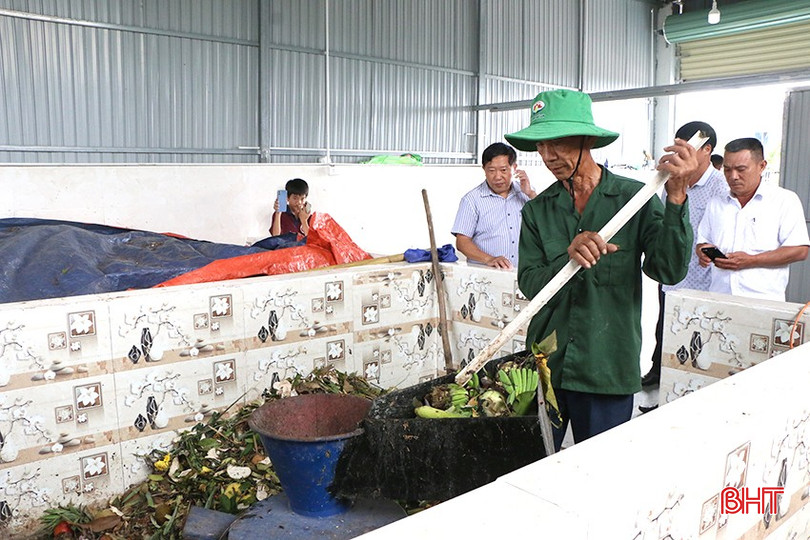
Every day, around 5-6 pm, Mr. Le Van Binh in Dong Ha village (Cam Binh commune) performs the familiar task of sorting and collecting organic waste, from vegetables, tubers, fruits, leaves... at the local market. He is both a security guard, market manager, and the person who is implementing the organic waste processing model according to the technology transfer process of Que Lam Group Joint Stock Company (Que Lam Group).
Mr. Le Van Binh said: “In 2022, Cam Vinh commune (old) started to build a model new rural commune. I worked as a security guard at the local market. Seeing the large amount of garbage from the market, it put a lot of pressure on the collection and treatment work, so I boldly implemented a centralized organic waste treatment model. Fortunately, at that time, Que Lam Group transferred to me the technology of treating with biological products, investing in a factory with specialized areas to produce organic fertilizers systematically and according to the process. Up to now, after 3 years of implementation, although the economic benefits in terms of personal income are not high, the model has greatly solved the environmental problem. Organic waste from the local market is collected and treated to ensure hygiene, without backlog; collecting and treating waste at the source has helped reduce 50% of the cost of collecting and transporting waste from the market to the treatment plant. In particular, the source of organic fertilizer is provided for agricultural production in the area."
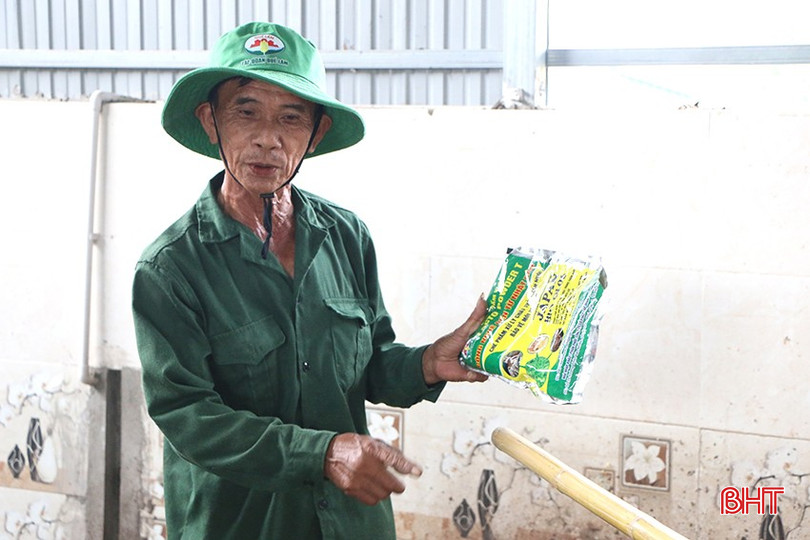
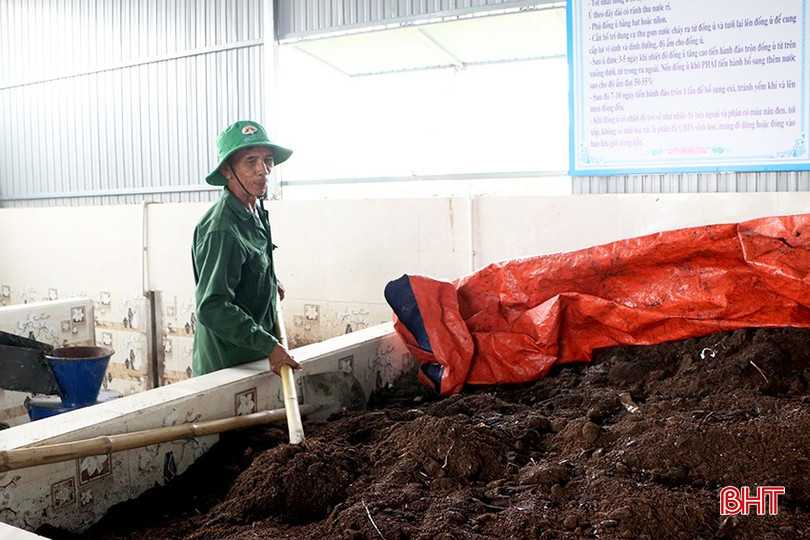
Mr. Binh shared that every day, he collects about 50 - 70 kg of organic waste from the market, transports it to 3 compost pits. From here, he begins the treatment process by cutting the waste into small pieces with a specialized cutter, and mixing and composting it with Que Lam Bio QL01 biological product according to the published process. With each ton of organic waste, about 200 kg of organic fertilizer can be produced, each batch of finished product is done in about 7 - 10 days.
“The only requirement is to be meticulous, from following the correct process of composting each layer with Que Lam Bio QL01 biological product, regularly checking the humidity (50-55%), performing mixing after 3-5 days of composting, continuing to carry out this process for 7-10 days. Treating organic waste with Que Lam Bio QL01 biological product is fast-decomposing waste, deodorizing well, creating quite good nutrients in the finished product. In particular, the composting process with Que Lam Bio QL01 biological product is very easy to do, suitable for many people” - Mr. Le Van Binh added.
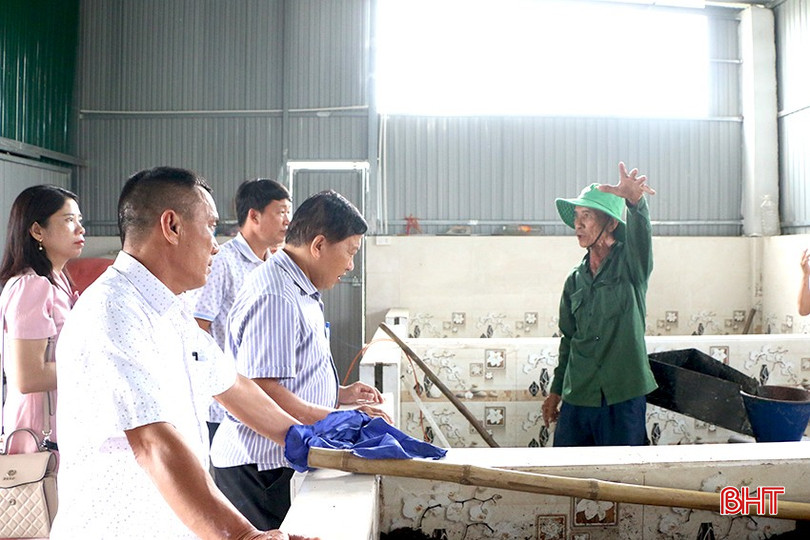
Currently, each month, the model provides about 5 - 6 quintals of fertilizer, the selling cost is about 150,000 VND/quintal, meeting the organic fertilizer needs of facilities, gardens, and rice for local people.
Mr. Le Van Hop (Dong Ha village, Cam Binh commune) said: “I have 600m2 of growing vegetables of all kinds. Since using organic fertilizer from the centralized organic waste treatment model, I no longer buy chemical fertilizers. Plants grow healthily, are safe for users, and productivity has increased by 25-30%; in particular, using fertilizer produced from biological products also helps to improve the soil to be loose and fertile, completely different from chemical fertilizers that "harden" the soil and are very difficult to improve. I use this type of fertilizer for both vegetable and rice gardens without needing to add any other fertilizer, including lime powder treatment as before.”
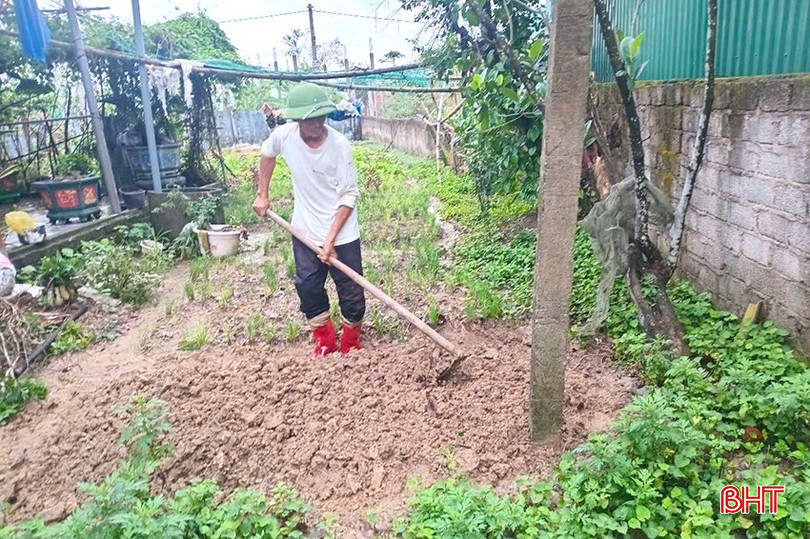
With the spirit of "going one step ahead", accompanying the province to realize the goal of "greening" agriculture , in recent times, Que Lam Group has deployed many organic agricultural models in the area, creating a strong change in the awareness and farming habits of farmers. From being hesitant with the new model, up to now, more and more households have boldly converted from traditional production to organic production, circular agriculture, sustainable, environmentally friendly. Many production areas have formed a closed value chain from "input to output", not only paying attention to production but also perfecting the process of treating agricultural waste, creating an effective natural circulation system.
Mr. Duong Kim Huy (Thach Lac commune) said: “After researching, I gathered like-minded people, established a cooperative to build an organic pig farming model in association with Que Lam Group and produce organic vegetables. Currently, THT has 10 households, raising about 30 pigs/batch, completely applying organic farming and circular agriculture processes associated with waste treatment at the source using Que Lam Bio QL01 biological products to make organic fertilizer. This is a waste treatment model suitable for farm-scale livestock farming, the process does not require too much sophistication, we take advantage of agricultural waste, from tree waste, vegetables, and tubers in the garden to compost organic fertilizer to create a closed value chain. On the other hand, biological products also help deodorize livestock farming, very suitable for current livestock farming".
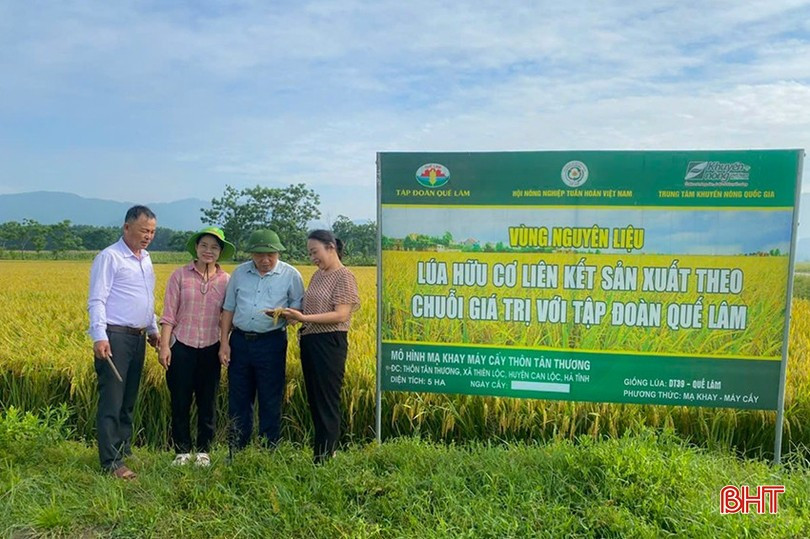

According to Que Lam Group Ha Tinh Branch, implementing the cooperation minutes between Que Lam Group and the People's Committee of Ha Tinh province and the People's Committees of some districts before, the branch closely follows the production progress, ensures the management process, supervises and supports people to develop organic agriculture and circular economy. Up to now, the total pig herd has reached 1,040 (including 195 sows, 172 piglets and 673 porkers); deploys many fruit tree production models such as oranges, grapefruits, guavas, purple star apples... At the same time, providing materials and consuming organic agricultural products, consuming 70 - 80 large pigs/month, an average increase of 20 pigs/month compared to the second quarter of 2025, providing a safe food source for the market.
Mr. Nguyen Tri Ha - an officer of Que Lam Ha Tinh Branch said: "After a period of accompanying farmers, the organic agricultural production models associated with Que Lam Group are affirming their effectiveness, not only in terms of economy but also in terms of environment and society. To continue to replicate and develop the organic production model, circular agricultural economy, the Group continues to strictly manage the biosafety livestock farming process, support technological, technical and engineering solutions to improve the capacity of farmers and managers. In particular, focus on developing and replicating the model of treating organic waste and livestock waste into organic fertilizer at households to treat organic waste at the source, circulating the process of treating agricultural by-products into nutritional fertilizer for crops, improving economic efficiency. Currently, we are connecting with a number of localities, not only in the Que Lam value chain but also replicating other livestock areas, working with the province to form habits Green production and consumption, reducing environmental pollution, gradually building sustainable ecological agriculture".
Source: https://baohatinh.vn/tap-doan-que-lam-ho-tro-nong-dan-ha-tinh-bien-rac-thanh-phan-huu-co-post297442.html





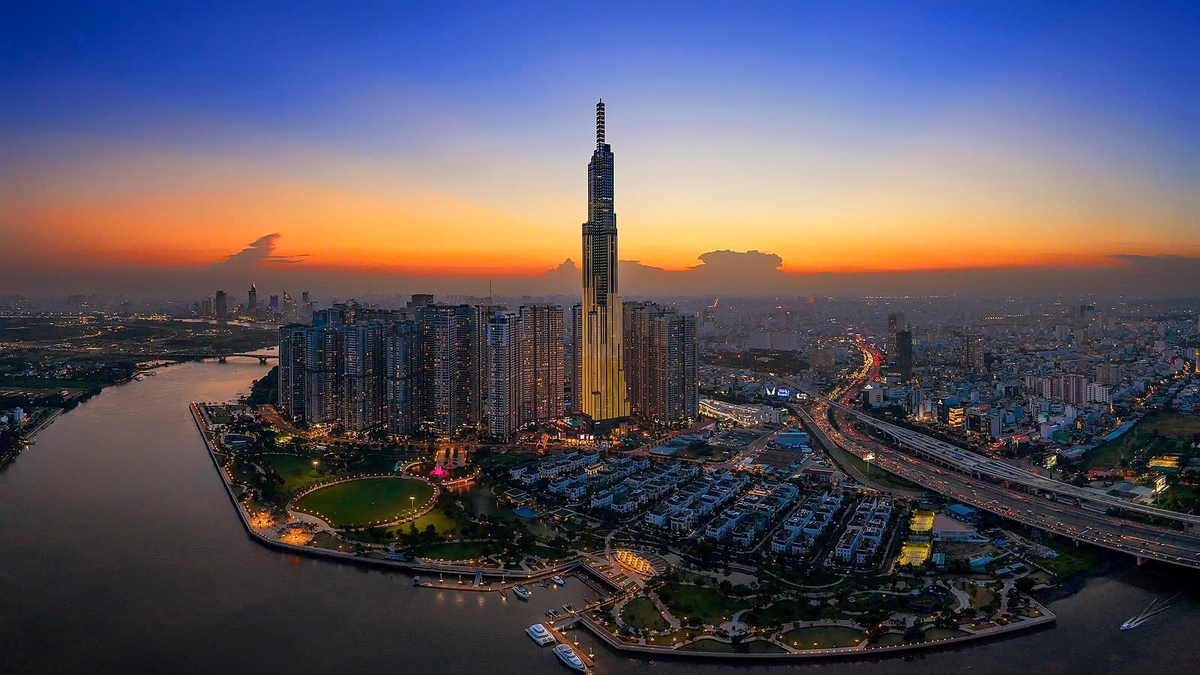


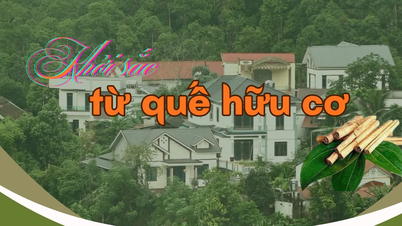





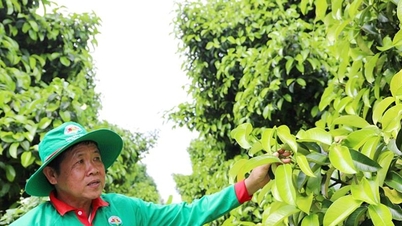

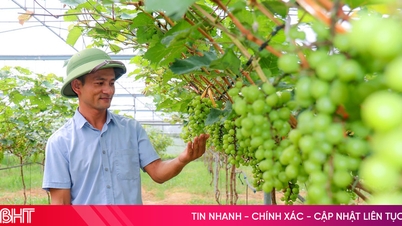


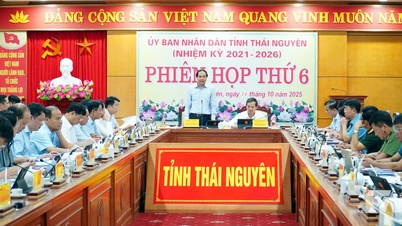

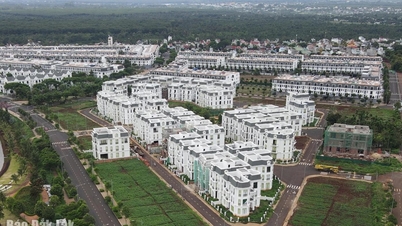

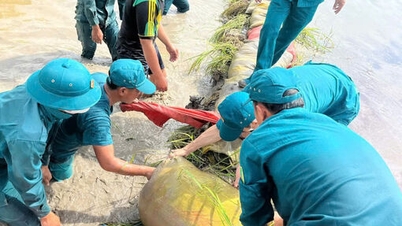



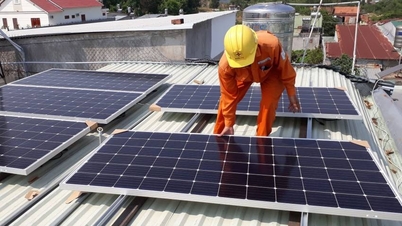

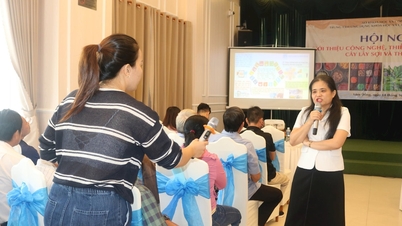






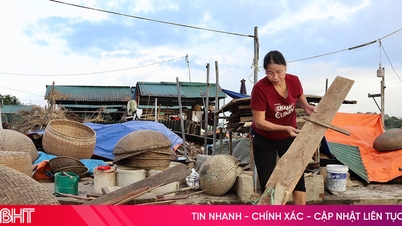
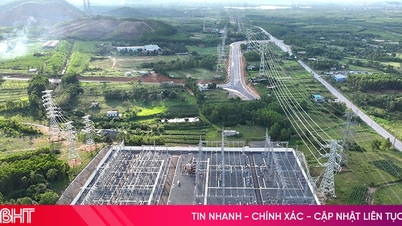
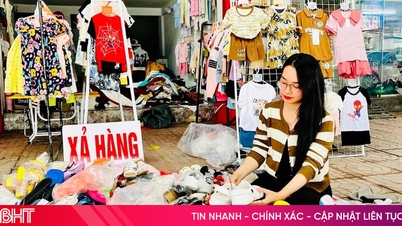
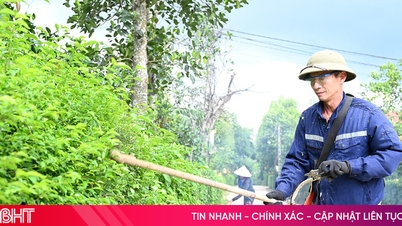
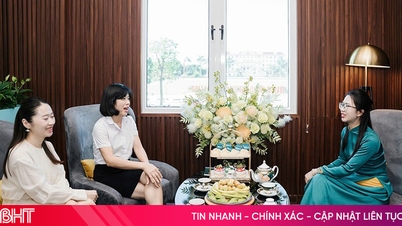













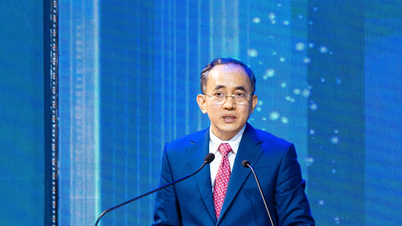










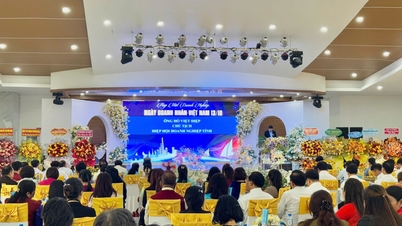




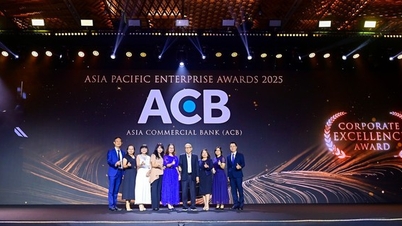







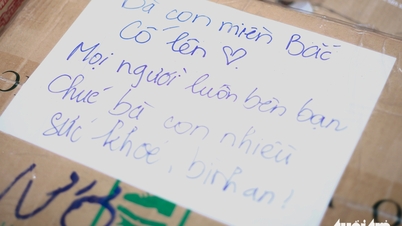

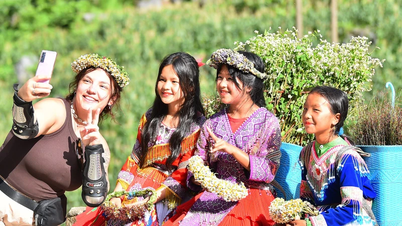
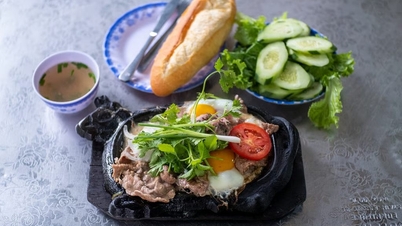



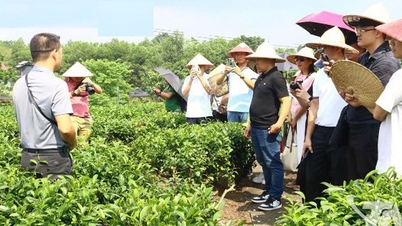


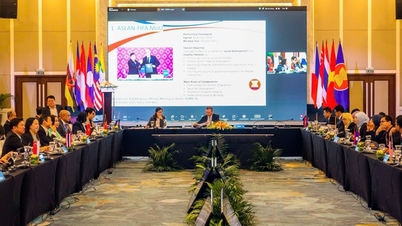
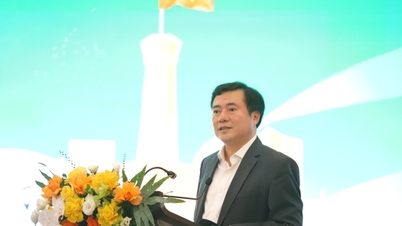
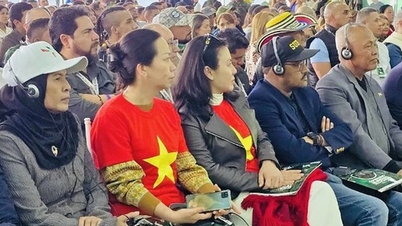
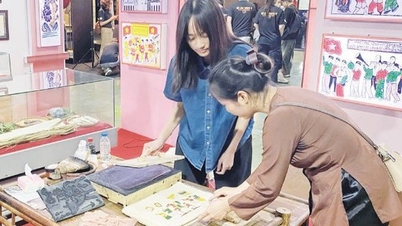
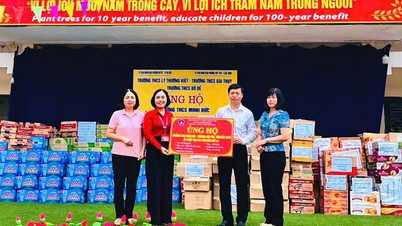

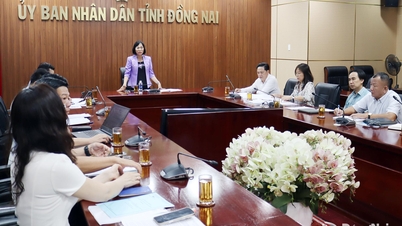
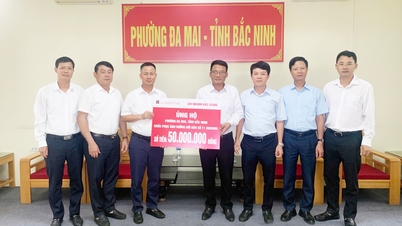
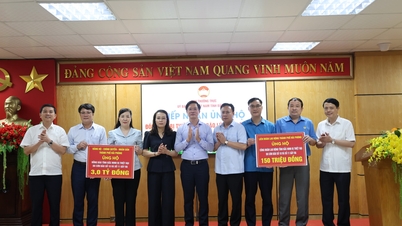

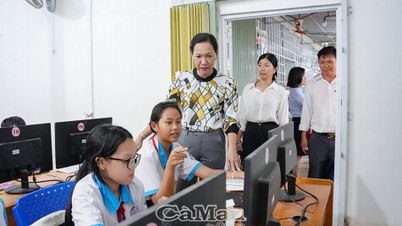
















Comment (0)